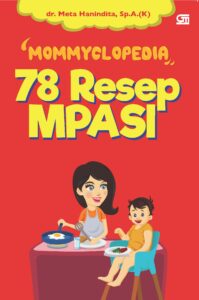2020 Participants
Nina Andiana
Past Program / 2020 Program / Nina Andiana
INTERVIEW VIDEO
| Country | Indonesia |
| Name | Nina Andiana |
| Publishers | PT Gramedia Pustaka Utama |
| andiana@gramediapublishers.com |
| Company | |
| Gramedia Pustaka Utama is a leading publisher in Indonesia. For more than 40 years Gramedia Pustaka Utama has been publishing many of Indonesia’s best books. Indonesia’s most established authors such as Ahmad Tohari, Eka Kurniawan, Ahmad Fuadi, Marga T., Agustinus Wibowo, Hermawan Kertajaya, Franz Magnis-Suseno, as well as international authors like Enid Blyton, J.K. Rowling, Paulo Coelho, Agatha Christie, J.R.R. Tolkien, Malcolm Gladwell, and Dale Carnegie have entrusted their works to be published by Gramedia Pustaka Utama. |
ARTICLE
Publishing through Pandemic: How We Are Adapting
Last year, when the APS organizers asked me to say a few words at the Open Forum to sum up our experiences and what we learned as participants during the program, one of the few things I said was that I believe books—and contents in general—will still thrive despite many challenges, it’s just that the business side of publishing needs to adapt and change. That was in September 2019. Little did we know that in only a matter of months the COVID-19 pandemic hit the world so unexpectedly, forcing everyone to adapt our ways in a much more accelerated pace.
Not every country deals with the pandemic with the same manner. Countries like Vietnam, South Korea, and New Zealand, to name a few, managed to curb the infection to a somewhat manageable rate. Unfortunately, that’s not exactly what happens in Indonesia. The first confirmed positive case was announced on March 2 and until August—when this essay is written—the number of new cases is still increasing by the day. This is worth mentioning since with COVID-19 characteristics, the health crisis will have a big impact on businesses and economies.
Impacts
Jakarta, the capital city with more than 11 million populations, started implementing large-scale social restrictions policy on April 10, 2020 for about two months where almost all unessential business was instructed to close, including book stores. Other cities follow different schedule of restrictions, but most major cities experienced this phase for at least a month. Some offices and select transportation modes were still allowed to operate, but with very limited capacity. After this period of strict restriction, businesses are reopening in a slow pace during the transition periods.
Due to the pandemic, the most direct impact for publishers in Indonesia would be the sudden steep decline in sales. Between April-May, about 60-70% of 120 Gramedia book stores were closed temporarily due to the pandemic. For Gramedia Pustaka Utama, the worst-hit month was April when we saw a decline of almost 70%.
On one hand, the whole editorial and design team are still working at approximately the same pace as before the pandemic, although we are working from home and that the whole team was forced to adapt to new ways—particularly regarding coordination with other teams. There were dozens of manuscripts ready for production, dozens more lining up for editing as authors were also still sending in quality works. On the other hand, the printing company also had to minimize production capacity to ensure health protocols are adhered. And on the warehouse, books that were already in print prior to the pandemic were piling up because the main sales channel were closed.
How We Adapt: Content Production, Sales, and Warehousing
It’s true that content production plays a very important role in publishing, but it would be almost impossible to run a publishing house smoothly without incorporating the sales and warehouse fronts. That’s why we need to adapt in all three aspects.
Given the new situation, in around late March we made a change and decided to mostly publish e-books as an emergency measure. The e-book market in Indonesia is not yet mature, but we know that to keep printing books at that moment will put more pressure on the already-burdened warehouse.
Even with that measure, we pay close attention to each title that we publish as e-book. If some titles perform well in the platform, we will immediately announce a Pre-Order system for a specific period of time where readers can place orders and we will print these titles, but only as many as the incoming orders. This move helps drive sales numbers go up while in same time preventing more books piling up in the warehouse.
Bookstores were also putting up lots of efforts to drive sales. Even when the social restriction was eased, people are still afraid to actually go out and buy books. So Gramedia bookstores started a program called Order, Pay, and Delivered where customers can chat with specific store (presumably the closest to their home), order books and pay them by bank transfer, and then the books will be delivered to their homes within hours.
Promoting Online
When we started implemented a work-from-home policy, we immediately cancel all promotion activities that involve crowds. That means as a publisher we need to find other ways to interact with readers, also to act as a bridge between authors and readers.
We are utilizing almost all platforms that we know will help us in bringing some of that offline experience to the online world. For example, we now use YouTube or Intagram Live when we launch new books. Zoom are used mainly for some kind of meet-and-greet with authors where we expect more discussions would be involved.
Reseller
Another move that we quickly made was opening up a new channel of sales. We noticed that during the pandemic the lots of people started a side hustle, and reselling products is one of them. The bookstores already have resellers, so we decided to broaden the reseller network and get the leverage from our social media accounts.
We posted an open recruitment e-flyer for resellers on our social media in mid-April and within 2.5 months around 50 new resellers registered. Mostly stay-at-home moms who want to earn extra income and some already have an online store in the market place such as Shoppe or Tokopedia. We basically provide marketing tools like digital catalogue and video of our books and they help spread the information to their circle of friends.
In the first month, we haven’t seen remarkable results. The second month was better and we saw a 4-times increase in sales revenue from the resellers. It was on the third month that we saw significant jump of sales, where in June the sales went up ten times higher than the previous month. From our experience so far, a jump in sales from resellers usually comes from about 1-5 titles. The comparison might not be accurate, but it’s like these select titles almost suddenly went “viral” in their circle.
We responded by making a specific program for resellers, for example by making a “Limited Reprint” promotion with special discounts. In several cases, this proved to be very effective. We learned that this type of marketing can’t be applied to every title, it’s a bit like hit-or-miss. In the future, as we have more experience with resellers, hopefully we can better understand the characteristics of books that are more suitable for this sales channel.
Online Sales
Like in most countries, during this pandemic online sales in Indonesia skyrocketed. As a whole, Statistics Indonesia recorded a surge of 320% in March and 480% in April 2020 of online sales when compared to the number in January 2020. Although the biggest chunk of these increase came from food & beverage sector, online sales for books also saw quite an increase.
On our group’s online platform (Gramedia.com), we saw an average sales growth of around 600% (February-July 2020) when compared to the same months in 2019. However, in value our online sales is still minor compared to our normal sales in the physical bookstore.
So the challenge would be how we can scale up online sales so that it can have bigger proportion in our overall sales value. In Indonesia, some of our major obstacles are shipping and internet connectivity. Because of our geography, with lots of islands spread around approximately 5 million km2 of the total area, shipping can be very costly and takes longer. The same goes for Internet. There are still some regions in Indonesia that don’t receive stable Internet connection, especially those located far from cities.
The Way Forward
It might be too soon to assume that a certain formula would become the solution for publishing going forward. First, it will be very dependent on how the health crisis that we’re facing now improves. Secondly, it also relies heavily on the characteristics of each publisher. For us, limiting print run and reducing physical titles to publish, at least for now, seems to be the way to go—specially with the situation with our warehouse. But the approach could be very different with your publisher. Figure out what works best for your publisher.
As editors, we usually have the passion to keep publishing books (in this regard print books) because we believe the books we worked on can contribute positively to the world. The need to balance this with the situation in the market and the overall condition of the business side of publishing is also a challenge for us. Of course we will scale back up again in the future, but we want to do that very carefully. With the infection rate still high in Indonesia, we will have to see how people and businesses adapt. They key thing to remember is that publishers will need to move quickly in responding to the situation. The last few months could mirror that for us since we’ve had to adapt our decisions and policies several times to keep up with the fast-changing environment.
For Indonesia in particular, the pandemic could also become an opportunity to help make e-books become more popular. With the convenience of not having to go anywhere, people might start looking into e-books more. This would present another challenge for certain types of books that “requires” printing physical books, for example activities book for children.
The last and maybe most important would be to update the authors about the changes we’re facing. Authors and publishers are in this together, so hopefully by working together more closely everyone can come out better from this tough situation.
BOOK INTRODUCTION VIDEO
VIDEO
RELATED BOOKS
 |  |  |
| Mommyclopedia: 78 Recipes for Baby’s Complementary Food 메dr. Meta Hanindita, Sp.A / Gramedia Pustaka Utama | Selena Tere Liye / Gramedia Pustaka Utama | Slam the Book! Rintik Sedu / Gramedia Pustaka Utama |
